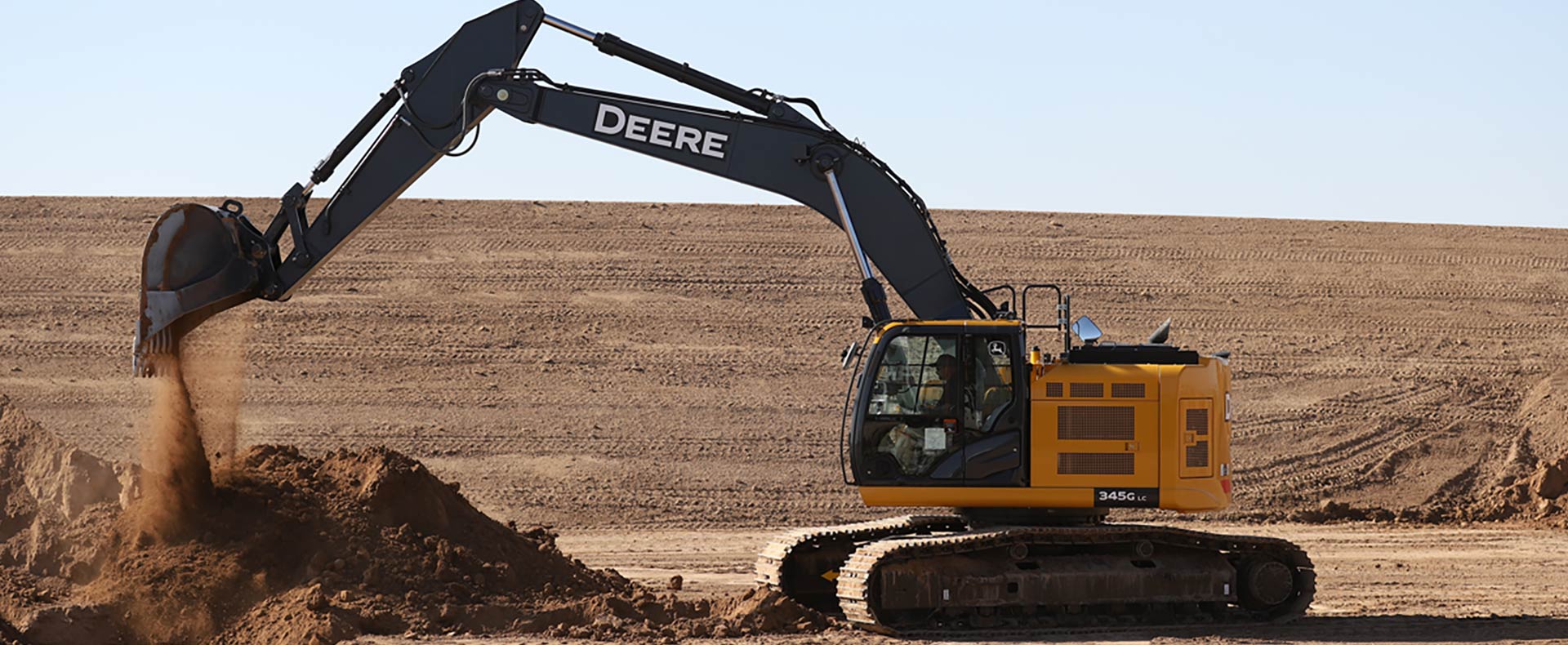
Not long ago, backhoes were one of the most popular used construction machines. Today, the excavator is taking hold of that title, with demand for both new and used excavators growing rapidly.
Because excavators offer more versatility –
ability to be paired with more attachments, used for more applications, and advantageous to more industries – it’s not surprising to see this uptick in popularity. The drawback for those interested in one, higher demand means lower supply,
again, for both new and used.
Those in the market for a used excavator have opportunity to secure one, with help from these five tips for buying a used excavator.
1. Buyer, Meet Seller
Between the internet, live
auctions, and qualified sellers, there’s no shortage of options when searching for any piece of used equipment. However, not all offer the same experience.
Choosing to buy a used excavator from an equipment dealer’s rental fleet
is an option that comes with several advantages. A large inventory, detailed service and maintenance records, and potential for after-sale support top the list of why to buy from a trusted dealer.
Private sellers require vetting, which can be done by asking for recommendations and reading online reviews. Keep in mind, the private seller’s ultimate goal is to do just that
– sell. An excavator might not be a good purchase for a particular buyer but a private seller typically isn’t concerned about the end-user’s needs, financial situation, or long-term plans.
Auctions are often a great source
for used equipment seekers. However, when a market is hot, as the market for used excavators currently is, auctions typically don’t see a large inventory of high-quality machines.
2. Get an Early Start
The agriculture
industry has seasonal factors that affect the best time to buy used farm equipment. While the construction industry doesn’t follow this same pattern, timing is a factor to consider when buying a used excavator.
Because of their popularity,
excavators move fast when they hit the used market. A business owner or fleet manager is wise to look ahead 30, even 60 days to see if an excavator purchase is likely to be needed.
This proactive approach allows time to continue a search
if initial options are scooped up too fast. It also puts a company in best position if working with a local dealer. An excavator may be scheduled to be coming back from a rental agreement, an opportunity to purchase it immediately upon availability.
3. Evaluate the State
To determine an excavator’s condition, ask the seller for a detailed account of the machine’s previous applications. For example, excavators that have been used for demolition work may
have more wear and tear than one used for digging and little else.
Another unique scenario is excavators that have spent time in trenches, swampy areas, or other jobsites with standing water. If not properly cared for, water can do significant
damage to a machine, sometimes damage that can’t be seen at first glance.
Additionally, give special attention to the excavator’s undercarriage. It’s usually not an issue with excavators compared to a machine that’s
more mobile, like a used dozer. However, undercarriage rebuild is an expensive repair so it’s worthwhile to check it out.
Finally, inspect the bucket, and stick pins and bushings to ensure there isn’t excessive wear.
4. History and Characteristics
Further digging into a machine’s history, it’s perfectly reasonable
to ask for service records, including detailed info like oil sample history.
Check all the pressures and make sure the speeds are set to factory specifications. An immediate red flag is a machine that can’t meet the factory specifications.
A machine’s hours is a final trait worth looking at. Machine values start to drop off significantly after 6,000 hours. Consider the long-term potential of the excavator in a fleet to determine the impact its hours has on the purchase.
5. Additional Use Considerations
The remaining areas to consider when looking for a used excavator go back to the add-ons that are of interest.
Similar to the excavator market itself, the excavator technology
market is hot right now. 2D, 3D, and other advanced automation systems are or will be available and making significant impact on the industry.
An advantage to used excavators is they can be outfitted with these systems – a company
doesn’t need to buy a brand-new machine to get the latest technology. Better yet, look for a used machine already equipped with some kind of automation or machine control guidance technology.
For users who need to run more attachments,
high-flow attachments, and run them for several hours, auxiliary hydraulics are a must-have.
If the trend of excavator popularity continues, expect them to be tougher to find and come with a higher price tag. Those looking to stay on top of the trend and invest in a quality used excavator now can follow these tips to find the right one for the
fleet.
----------
About the Author
Dennis Howard has spent more than a decade with RDO Equipment Co.’s construction equipment division, working with teams in the company’s Texas and the Desert Southwest regions. As a Vice President, he focuses
on fleet management, with used construction equipment values and heavy equipment sales two of his key areas of expertise. He’s a member of the Association of Equipment Management Professionals (AEMP) and a regular contributor to ForConstructionPros.com. Connect with him on Twitter @RDODennisH.
Shop used excavators for sale from
RDO Equipment Co. to find the right addition to your fleet.
Browse complete listings of available used construction equipment from RDO Equipment Co. or find options by visiting your local RDO Equipment Co. store.